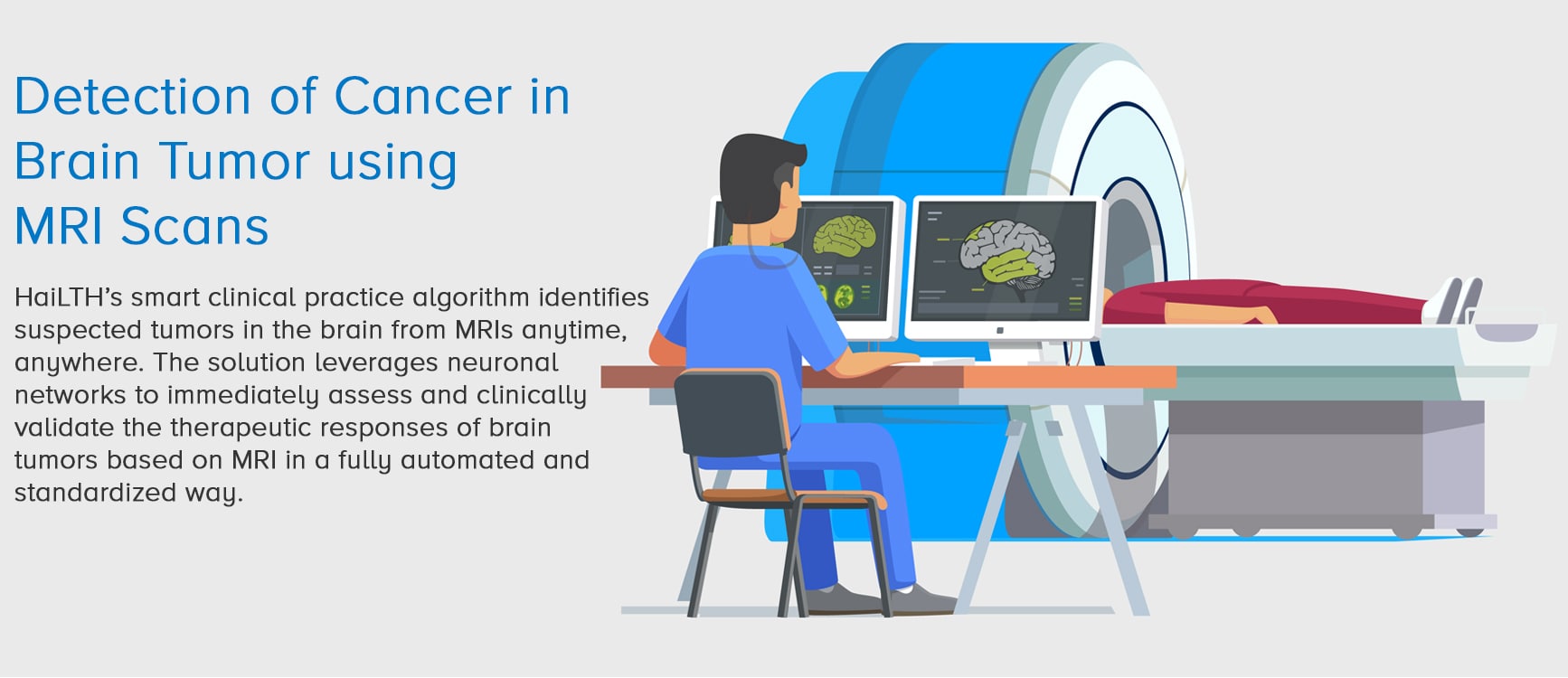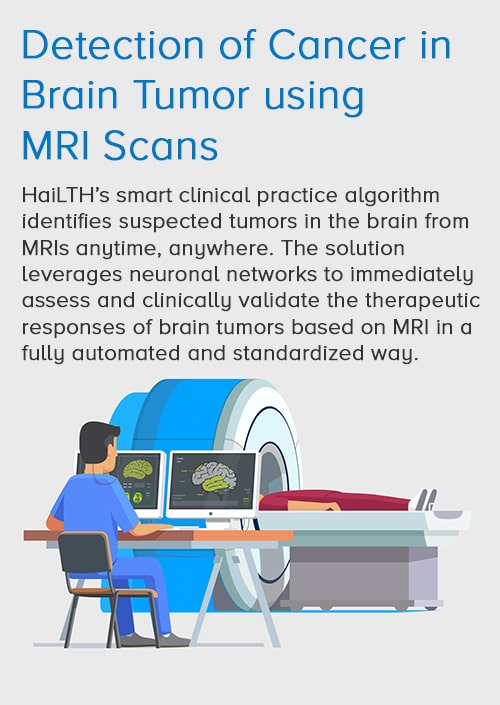Decoding the Brain: Extending Care with Intelligence
One of the essential criteria for the precise assessment brain tumors is malignancy, which is usually determined by an MRI. However, the manual reporting of tumor is prone to errors and leads to distorted results. This can negatively impact the assessment of therapy response and precision of scientific statements based on imaging. HaiLTH’s unique solution helps in the following ways:
processing, analysis, and alert
generation of cancer in brain tumors
personalized care to patients, especially
those suffering from glioblastoma –
an aggressive and malignant brain cancer
Brain Tumor Diagnosis: Four Steps for Moving from Fear to Action
What’s Now and Next for AI in Brain Cancer Treatment

According to the American Cancer Society, just under 24,000 people were diagnosed with some kind of malignant brain tumor last year, including about 14,000 men and 10,000 women. Studies on the incidence of brain tumors in the last 20 years have shown an increase among ages. It has grown more than 40 percent in an adult person. In most severe cases, cancerous tumors cannot be totally removed by surgery. In those cases, radiotherapy or chemotherapy are the only effective forms of treatment to a certain extent as these tumors are highly resistant. New and validated treatment approaches are essentially the need of the hour.
Time is key for brain cancer patients. Keeping this in mind, HaiLTH’s smart solution has been designed on the RAD 365 technology infrastructure to offer results that are both qualitatively and quantitatively different from what is available.



